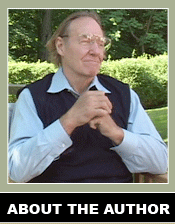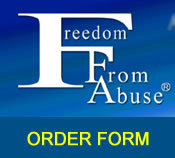

Abuse is a complex problem to which we have responded with "cuts and bruises" strategies that have led us in circles. Abuse is a two-victim circumstance. There is the real victim who has been molested physically and emotionally and there is the rationalizing perpetrator who believes that he or she was so powerless that abuse was his or her only recourse. We know this is not true, but it is a common theme in abuse cases.
We know what good caregiving practice is and we must teach, recognize and reward its use. We know what harmful caregiving practice is and we must halt it at once.
The most perplexing and disconcerting character of abuse is its cruel persistence. In the past thirty years, much has changed except the persistence of what we have falsely believed to be episodic mistreatment. We call it the abuse of vulnerable persons. Employees do not always see it that way. They know that abuse is wrong. They know they can lose their jobs and even risk legal penalties. But...abuse persists. We must acknowledge it as a basic reality. If clients, consumers, patients, vulnerable persons are not safe with the caregivers we recruit, train, supervise and evaluate, we are at fault. We must take care of the people who take care of the people.
ABUSE BEGINS AT THE IMPACT POINT OF HUMAN SERVICES. Immediate providers need, deserve and must have training, supervision, correction, praise and evaluation that will prepare them for daily pressure. There are correct ways of approaching, engaging and responding to the men and women. It is the responsibility of managers, supervisors and colleagues to make certain that caregivers know when they are correct or incorrect in their caregiving style and methods. This means that they must be willing to accept constructive criticism as a means of instruction. Correction is instruction. Instruction fosters learning. Learning leads to caregiving mastery. Mastery offers satisfaction, prestige and pride.
The artistry of supportive care is knowing how to:
* be central to consumers' lives without encouraging dependency patterns
* make ordinary activities special
* avert or minimize emotional-behavioral episodes
* start each day anew, and
* knowing that you are a member of a proud profession whose honor and integrity you will protect
Our goal is to have as many caregivers as possible become masters of the art of giving care. Recognition and praise of their efforts and accomplishments must accompany correction and evaluation with the men and women. To attain the trust necessary for this collaborative effort to achieve excellence in the caregiving art, members of the service agency or company must regard one another as colleagues. Caregivers have a job to perform. Managers, supervisors, psychologists, case managers, therapists, nurses have their jobs to perform, but if all these jobs are not unified, the men and women will not receive the quality of care they deserve.
Please Visit:
Find out how such Roger MacNamara® concepts as Emotionally Responsible Caregiving, Diagnostic Supervision, and Service Delivery Management lead to "Zest for Living" and "Inner Peace".
Hiring and Training
Diagnostic Supervision
The Caregiving Personality
Service Delivery Management
Zest for Living - An Abuse Free Life
Courageous Caregiver
A message from the producer of the Roger MacNamara® video series
Here's Mt. Vernon News' review of the video series (Coming Soon)


